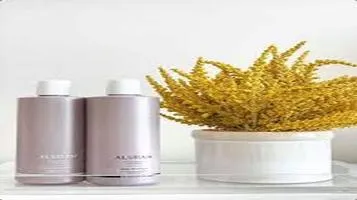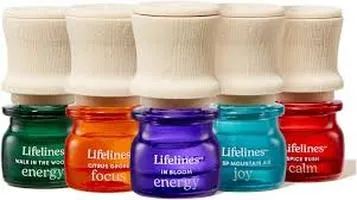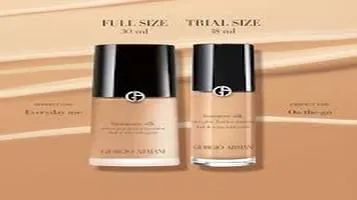Embracing Sustainability: A Review of Eco-Friendly Bathroom Products
Eco-friendly bathroom products are designed to minimize environmental impact while providing effective personal care and hygiene solutions. These products typically feature natural, biodegradable ingredients and are free from harmful chemicals like parabens, sulfates, and artificial fragrances, making them safer for both the user and the planet. Packaging is often recyclable, compostable, or made from recycled materials to reduce plastic waste. Popular eco-friendly bathroom items include bamboo toothbrushes, biodegradable shower loofahs, natural soap bars, and refillable shampoo and conditioner bottles. By choosing sustainable options, consumers contribute to reducing water pollution, conserving resources, and promoting a healthier environment. Eco-friendly bathroom products not only enhance personal well-being but also support a global movement towards sustainability and ecological responsibility.

In an era where environmental consciousness is becoming increasingly imperative, the pivot towards eco-friendly products is not just a trend but a necessity. The bathroom, often overlooked as a significant contributor to household waste and resource consumption, offers ample opportunities for sustainable practices. Eco-friendly bathroom products are not only a testament to responsible living but also a gateway to healthier, more natural personal care routines. This review delves into the merits and practicalities of these products, exploring their impact on both the environment and our daily lives.
The Essence of Eco-Friendly Bathroom Products
Eco-friendly bathroom products encompass a wide range of items, from personal hygiene essentials to cleaning agents. These products are designed with a minimal environmental footprint, featuring biodegradable materials, recyclable packaging, and non-toxic ingredients. The primary goal is to reduce waste, conserve resources, and eliminate harmful chemicals that can leach into our ecosystems.
Toothbrushes and Toothpaste: Small Changes, Big Impact
One of the simplest yet most effective swaps you can make is replacing conventional plastic toothbrushes with biodegradable alternatives. Bamboo toothbrushes, for instance, are gaining popularity for their sustainable sourcing and compostability. Unlike plastic, bamboo is a rapidly renewable resource, and when disposed of, it decomposes naturally without harming the environment.
Eco-friendly toothpastes, often packaged in recyclable or compostable materials, are another significant upgrade. Many of these toothpastes are free from fluoride, sulfates, and artificial flavors, relying instead on natural ingredients like baking soda, coconut oil, and essential oils. Not only are these formulations gentle on your mouth, but they also reduce the chemical load entering our water systems.
Shampoo Bars and Solid Conditioners: Cutting Down on Plastic
The beauty industry is notorious for its excessive use of plastic packaging, particularly in hair care products. Shampoo bars and solid conditioners offer a sustainable alternative. These products are typically free from plastic packaging and made with natural, biodegradable ingredients.
Shampoo bars are concentrated, meaning a small bar can last as long as several bottles of liquid shampoo, reducing both packaging waste and the frequency of repurchases. They are also sulfate-free, which makes them gentler on the scalp and less likely to strip hair of its natural oils. Solid conditioners work similarly, providing moisturization and detangling benefits without the environmental cost of plastic bottles.
Zero-Waste Skincare: Natural Beauty without Compromise
Zero-waste skincare products are designed to minimize waste at every stage, from production to disposal. These products often come in reusable or compostable packaging and are formulated with natural, organic ingredients. Items such as facial cleansers, moisturizers, and exfoliants can be found in solid or bar form, reducing the need for plastic containers.
Many zero-waste skincare brands emphasize cruelty-free and vegan formulations, ensuring that ethical considerations extend beyond environmental impact. Refillable containers are another innovative approach, allowing consumers to purchase bulk refills and reduce single-use packaging.
Eco-Friendly Cleaning Products: Safe and Sustainable Hygiene
Bathroom cleaning products are notorious for containing harsh chemicals that can be detrimental to both human health and the environment. Eco-friendly cleaning solutions, however, offer effective results without the toxic footprint. These products often utilize plant-based ingredients and essential oils, providing powerful cleaning action with natural antibacterial properties.
Refillable cleaning bottles and concentrated formulas are common in this category, encouraging consumers to reuse containers and reduce plastic waste. Additionally, many eco-friendly cleaning brands employ biodegradable packaging, further minimizing their environmental impact.
Sustainable Sanitary Products: Revolutionizing Personal Care
The shift towards sustainable sanitary products is perhaps one of the most impactful changes one can make. Traditional sanitary pads and tampons contribute significantly to plastic waste, with billions of non-biodegradable products ending up in landfills annually. Eco-friendly alternatives, such as menstrual cups, reusable cloth pads, and organic cotton tampons, offer sustainable solutions.
Menstrual cups, made from medical-grade silicone, can last for years, drastically reducing waste. Reusable cloth pads and period panties provide comfort and reliability without the environmental cost of disposables. Organic cotton tampons, free from synthetic chemicals and pesticides, offer a healthier option for both the body and the planet.
The Broader Implications
Adopting eco-friendly bathroom products signifies more than just a shift in purchasing habits; it represents a commitment to a sustainable lifestyle. By choosing products that are better for the environment, we contribute to a reduction in pollution, conservation of resources, and a decrease in our overall carbon footprint.
Moreover, these products often promote better health outcomes. Natural ingredients reduce our exposure to harmful chemicals, and cruelty-free practices ensure that our beauty routines do not come at the expense of animal welfare.
In conclusion, eco-friendly bathroom products are a powerful means of embracing sustainability in our daily lives. From biodegradable toothbrushes and solid shampoos to zero-waste skincare and sustainable sanitary products, each choice we make has the potential to create positive environmental change. As consumers, our decisions can drive the market towards more responsible practices, making a significant impact one bathroom at a time.






